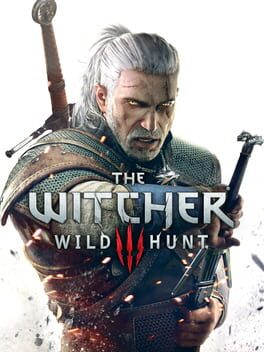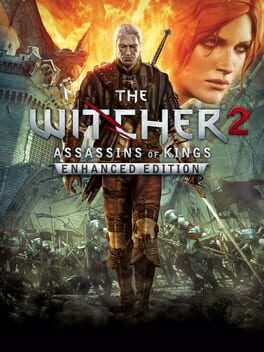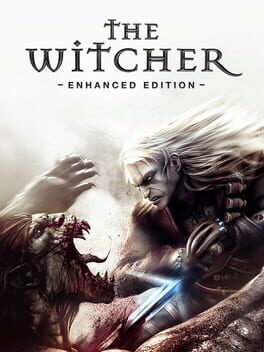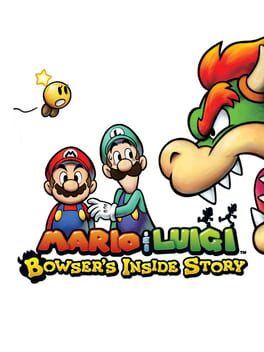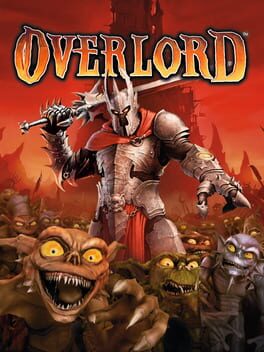laconiclake
2017
Although not as refined as titles such as Half Life Alyx, To The Top is still a game I'd reccomend to anyone with a VR headset. The atmosphere and music make even the sometimes frustrating levels enjoyable, and even the lackluster story (it's on the steam page but not anywhere else) can't bring this game down.
It's become a bit of a joke online that The Witcher 3 is some 'hidden gem', despite it being a breakout hit that both sold and reviewed well, so much so that I was expecting to be disappointed when playing. This was even more the case after the infamous launch of CDPR's next game, Cyberpunk 2077, which seemed to make the entire internet turn on the developer for a time. However, upon both playing the previous two games, and making my way through the actual books, I thought that The Witcher 3 was well worth the effort. Not that I disliked the prior games or books, merely that I feel like CDPR was finally able to create the type of game they had originally envisioned with the first Witcher game. This is not a perfect game - the gameplay is a worse Arkham-style, and signs and potions besides the shield sign and healing potion are completely ignorable. Inventory management takes up a large chunk of the game, with lots of fast travelling to merchants to unload the many swords and axes Geralt picks up. The first act's main story is a blatant excuse to send the player around the world to meet everyone, as you track down dead end after dead end. But this is a perfect example of being more than the sum of its parts, as it all comes together in a way to make even the most mundane of sidequests interesting. The number of decisions that the player is forced to make that actually impact things down the line isn't that much, but is just enough to make the player feel like they do actually matter. More so than the consequences of a decision, it makes you think of the type of person your Geralt is, and in turn what type of person he has raised Ciri to be. I am beyond excited to have the DLC's to play through next.
The Witcher 2 is much more ambitious than the previous game, but doesn't quite stick the landing. The building blocks of what would be refined in The Witcher 3 (the new behind the back combat and UI) are here, but CDPR hasn't quite managed to make everything gel correctly. This game holds the distinction of being the shortest of all Witcher games, at least when playing through only once. The game builds off of the moral choices of the first and halfway through forces the player to align with one of two opposing factions, which will influence the final act of the game, and incentivizes two playthroughs to get the most out of each route and answer a few final questions. An interesting concept, but after finishing Witcher 2 I was much more interested in moving on to bigger and better things than sticking around.
The first thing to get out of the way is that this game isn't an action game like the other Witcher games, it's more like a rhythm minigame where you just choose the correct style and sword and click at the right time. It's not the most engaging system, as once you understand that every battle turns out the same. However, the series in general hasn't had the best gameplay, so I'd rather it be inoffensive and not take up much of your time. The real interesting part of the game is author Andrzej Sapkowski's world, which still feels living and breathing despite the game's age. Nothing is black and white, even basic worldbuilding details. Something said by many people, and even Geralt himself, is the fact that Witchers have no emotions. Even after being around Geralt for a few hours, it becomes obvious that this is propaganda used both by others to feel better about treating Witchers poorly and by Witchers to avoid having to process the death and horrors in their everyday life. The same is the case with the 'neutrality' that Geralt espouses many times, as despite declaring that there is no lesser evil, Geralt and the player will most of the time be forced to make a decision and live with the consequences. Despite some inconsistencies with the books and the main plot having a few handwaves, it's definitely worth it to take the time to play through this first before getting to the later entries.
Bowser's Inside Story makes better use of the Nintendo DS's dual screens than any other game out there. It surpasses the other uses by not feeling like a gimmick or a tech demo, but an actual fleshed out idea that can carry a game on its back. Not to mention the characterization of Bowser as such a charismatic idiot never fails to make the dialogue fun. RIP to AlphaDream, you deserved so much better.
2007
Ever since playing it for the first time, I've had a soft spot for the Overlord series, which I've felt has always been on the cusp of something really interesting. Set in a twist on a typical fantasy world, you play as the typical dark lord that serves as the final boss of most games, and each boss is a typical fantasy party member that has succumbed to some vice (the halfling turned gluttonous, the paladin was corrupted by lust, etc). It can sometimes come off as trying a bit too hard to be edgy, but in general the tone stays rather comedic, best exemplified by the minions that you control. Predating the better-known ones from 'Despicable Me', these minions are meant to be completely expendable, ready and proud to throw their life away for their dark master. The game takes more than a few pages from Pikmin's book, as you will use these minions to swarm enemies, clear obstacles, and carry objects. In a genuinely nice touch, minions will grab whatever objects they can find, whether that be a helmet or a hollowed-out pumpkin, and put those items on, which will then be visible whenever that minion is summoned again. I can't say properly equipping them made them feel much stronger, but it went a long way to endear what could otherwise be annoying comic relief gremlins. The game doesn't outstay its welcome and ends just when traversing the interconnected locations can start to feel old. There are also some black and white moral choices thrown into the game in true 7th gen fashion, which have some neat cosmetic changes but largely don't impact the story. Overall, I think the IP shows great potential to be elaborated on later, and if circumstances were different, it may have been able to be like Assassin's Creed and truly find its footing with its second entry.

